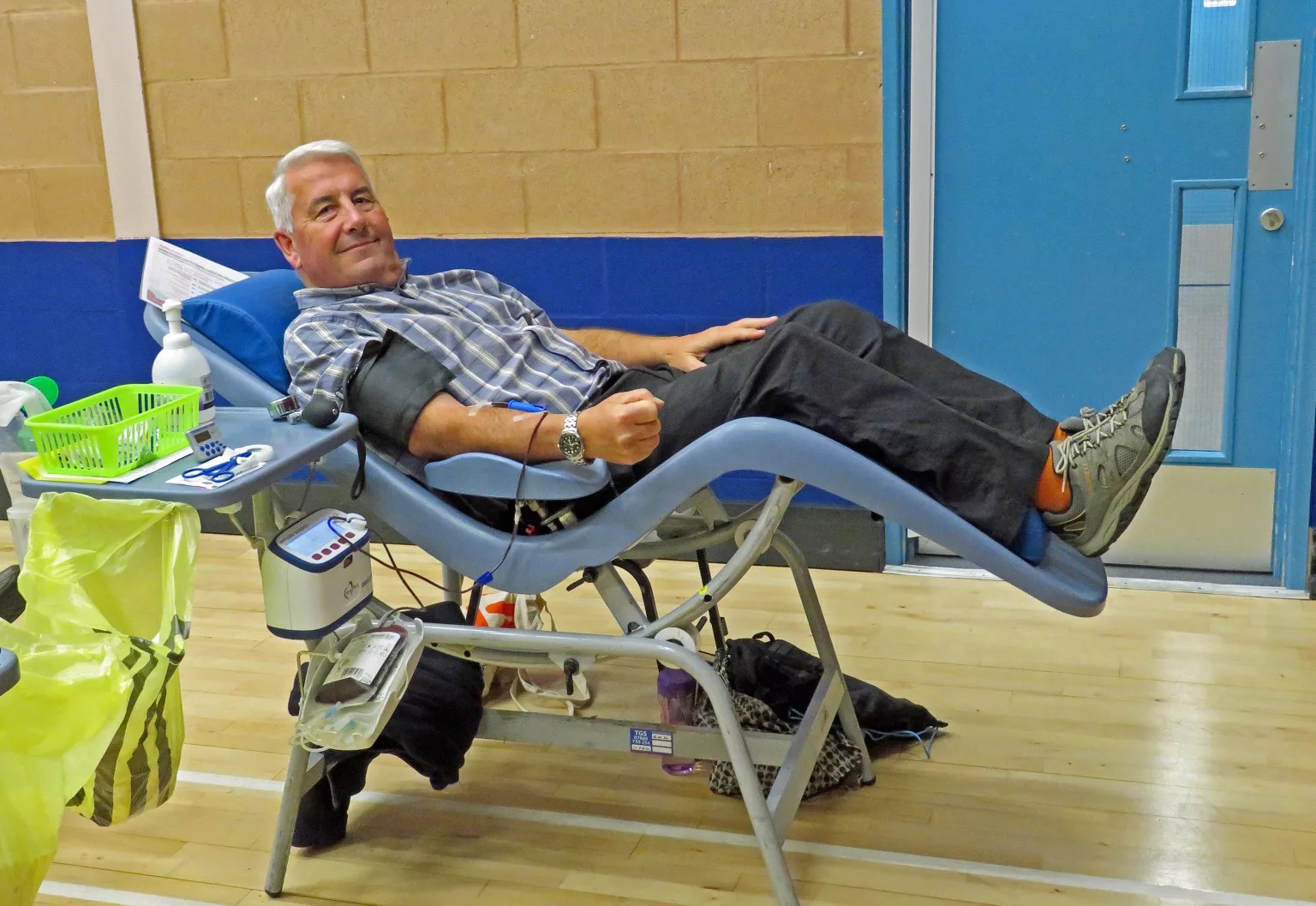David Rose
I know just how important donated blood is from personal experience. I was given blood after being involved in a road traffic accident in 1979.
I had started racing motorcycles in 1976 and needed to pass a medical examination before I could be granted a racing licence. The examination included blood type, which I didn’t know, so my GP suggested that I attend a local blood donation session to find out.
This, of course, I was happy to do, although I didn’t expect to need to be given blood myself within a few years.

My life was saved by the skill of the medical staff treating me after the accident and, crucially, many units of donated blood. I lost a limb and two major operations were required to help me get through. Without those blood products, I would not have survived my injuries.
Although anyone who has received blood, platelets, plasma, or any other blood products after 1 January 1980 is not allowed to donate under the current rules, my second major surgery was carried out in October 1979 and I was able to continue my journey as a blood donor.
My life was saved by the skill of the medical staff treating me after the accident and, crucially, many units of donated blood
That journey continues today, and in fact reached a significant milestone recently: in December 2023 I made my 100th blood donation.
How long I will be able to continue will be dependent upon my general health, as there is no longer an aged-related cut-off, as was the case when my late father was around.
 He started donating blood whilst serving in the RAF and then continued until his 65th birthday, when the old rules prohibited any further donations. My father was most unimpressed, as he was still very healthy and active.
He started donating blood whilst serving in the RAF and then continued until his 65th birthday, when the old rules prohibited any further donations. My father was most unimpressed, as he was still very healthy and active.
I happened to mention this little bit of family history to the staff at my recent 100th donation session and they advised that there had been, earlier that day, a donor who was in their eighties!
(Picture: David on a Yamaha RD250 production class racing bike in the 1970s)
As Chair of the Limbless Association, I’ve met many people who have received blood donations as a direct result of limb loss.
At the Limbless Association, we want to support and empower all amputees to lead independent and fulfilled lives. We believe no amputee need cope alone.
On average, 4,300 blood donations are needed every day to meet the needs of hospitals, but on average, only 2% of people who are considered eligible to donate blood actually give a donation.
So please, if you have the chance, spread the message that we need more people to volunteer to give blood – the true gift of life!
